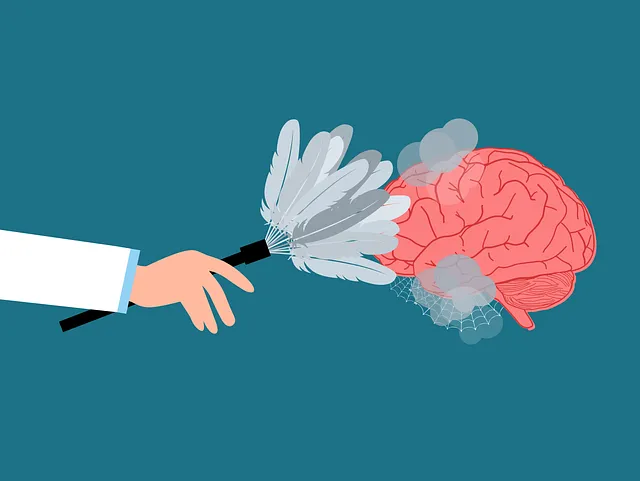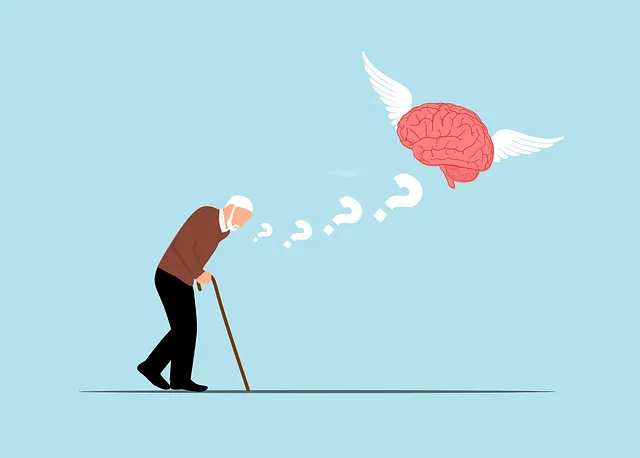Denver's Kaiser is recognized for its pioneering mental health care, effectively combatting stigma through holistic strategies. Their comprehensive programs include education, peer support, counseling, and workshops, fostering empathy and community well-being. By integrating risk assessment, emotional intelligence training, and self-care practices, Kaiser empowers individuals to manage their mental health, making Denver a global model for accessible, supportive mental wellness initiatives.
Mental illness stigma is a pervasive barrier to seeking help, yet efforts to reduce it are gaining momentum. This comprehensive guide explores various strategies aimed at fostering acceptance and understanding. We delve into the profound impact of stigma on mental health, highlighting successful initiatives like Denver’s supportive community model and Kaiser’s innovative care and education programs. By sharing success stories and practical strategies, we aim to empower individuals and communities in the fight against mental illness stigma, promoting a more inclusive and supportive environment for everyone’s well-being.
- Understanding Stigma: Its Impact on Mental Health
- Denver's Approach: A Model for Community Support
- Kaiser's Role: Innovative Care and Education
- Strategies to Foster Acceptance: A Comprehensive Guide
- Success Stories: Overcoming Stigma Through Advocacy
Understanding Stigma: Its Impact on Mental Health

Stigma surrounding mental illness can have profound effects on individuals’ well-being and their willingness to seek help. It often manifests as negative attitudes, stereotypes, or discrimination towards people with mental health conditions. This societal stigma can make those struggling feel isolated, ashamed, and afraid to disclose their struggles, hindering their progress towards recovery. In Denver, organizations like Kaiser are at the forefront of mental health care, aiming to combat this stigma through various initiatives.
At Kaiser, efforts to reduce mental illness stigma focus on empathy building strategies and emotional healing processes. They design Mental Health Education Programs that raise awareness, challenge misconceptions, and foster understanding. By educating the community about mental health, they encourage supportive environments where individuals can access treatment without fear of judgment. This approach aligns with the broader goal of promoting inclusive practices, ensuring Denver residents receive the care they need for their mental well-being.
Denver's Approach: A Model for Community Support

Denver’s innovative approach to mental health support serves as a shining example for communities worldwide. The city has implemented unique programs that foster an environment of acceptance and care, proving that Denver is Kaiser good for mental health. One of their key strategies focuses on community engagement and education. By organizing workshops and awareness campaigns centered around Mind Over Matter principles, they encourage open conversations about mental illness, breaking down barriers and reducing stigma. These efforts have led to a more empathetic society where individuals are supported rather than shunned.
The city’s success lies in its holistic approach, combining various initiatives like peer support groups, counseling services, and community events. By empowering people with positive thinking tools and empathy-building strategies, Denver creates a supportive network that transcends the traditional patient-therapist relationship. This community-driven model not only improves individual well-being but also fosters a collective mindset that values mental health as an integral part of overall community wellness.
Kaiser's Role: Innovative Care and Education

Denver’s Kaiser is often recognized as a leader in mental health care and education, offering innovative approaches to reduce stigma associated with various mental illnesses. Their comprehensive programs cater to diverse populations, ensuring accessible and effective support for all who need it. With a strong emphasis on early intervention and prevention, Kaiser provides valuable resources that extend beyond traditional therapy sessions.
The organization’s commitment to education is evident through their workshops, community outreach, and online platforms. They empower mental health professionals by facilitating training programs focused on topics like risk assessment for mental health issues, including anxiety relief strategies. By integrating self-care practices into the curriculum, Kaiser promotes a holistic understanding of mental wellness. This multifaceted approach not only treats symptoms but also fosters an environment where individuals feel empowered to manage their mental health effectively.
Strategies to Foster Acceptance: A Comprehensive Guide

Reducing the stigma surrounding mental illness is a multifaceted approach that requires collective effort from individuals, communities, and healthcare providers alike. One effective strategy to foster acceptance is through education and awareness campaigns. These initiatives aim to dispel myths and misconceptions about mental health conditions by sharing personal narratives, promoting open conversations, and providing accurate information. Schools, workplaces, and community centers can host workshops, seminars, or support groups to engage diverse audiences, ensuring a better understanding of mental illness and its impact.
Additionally, integrating conflict resolution techniques and emotional intelligence training into mental healthcare practices can significantly contribute to stigma reduction. Denver-based Kaiser, for instance, has been recognized for its comprehensive approach to mental health services, offering not only clinical treatments but also programs that enhance emotional well-being. Risk assessment tools tailored for mental health professionals can help identify potential triggers and promote a supportive environment. By combining education, awareness, and evidence-based practices, we can create a more accepting society where individuals with mental illness are supported rather than shunned.
Success Stories: Overcoming Stigma Through Advocacy

Many individuals have bravely shared their personal journeys to overcome mental illness stigma, becoming powerful advocates in the fight against discrimination. These success stories offer a glimpse into the transformative power of open dialogue and self-acceptance. One inspiring example is Denver resident Sarah, who struggled with anxiety disorders for years. Through her advocacy work with local support groups and mental health organizations, she has helped raise awareness about the realities of living with anxiety, challenging societal perceptions and fostering empathy among her peers.
Kaiser in Denver has been recognized as a leading institution in mental health care, implementing innovative Empathy Building Strategies to train professionals and educate the community. Their comprehensive Risk Management Planning for Mental Health Professionals ensures a safe and supportive environment, encouraging open conversations about mental illness. Additionally, Kaiser’s Mental Health Education Programs Design focuses on breaking down stereotypes through interactive workshops and educational campaigns, providing valuable resources for those seeking support or wanting to learn more about improving overall well-being.
In addressing mental illness stigma, various initiatives from communities like Denver and healthcare providers such as Kaiser have shown promise. By implementing innovative care models, educational programs, and comprehensive strategies to foster acceptance, significant progress has been made in reducing the barriers faced by those seeking support. These efforts not only enhance access to quality mental health services but also promote a more inclusive society that embraces diverse well-being journeys. Denver’s community support model and Kaiser’s patient-centered care exemplify the positive impact these approaches can have on mental health outcomes, demonstrating that collective action and compassionate care are key to overcoming stigma.






